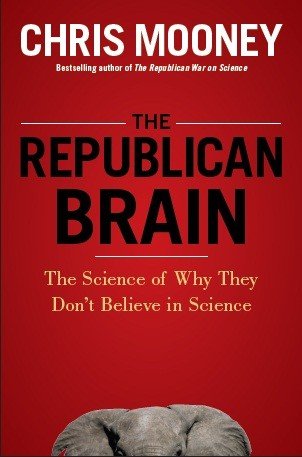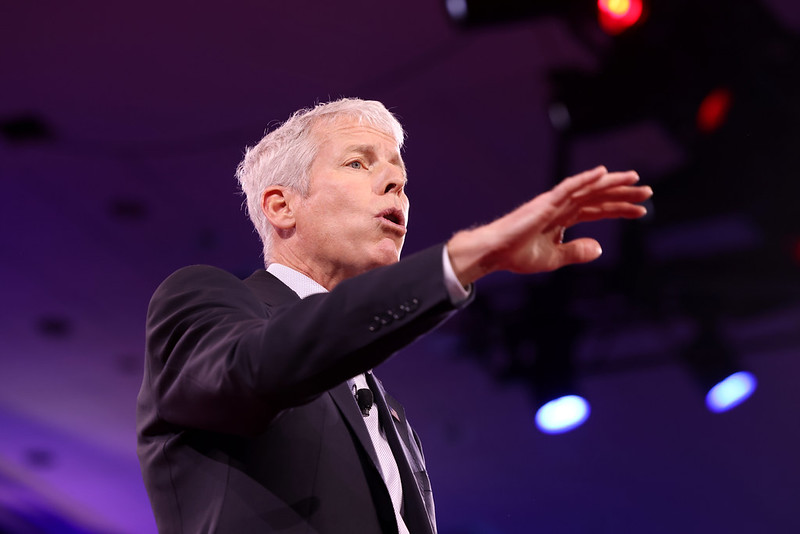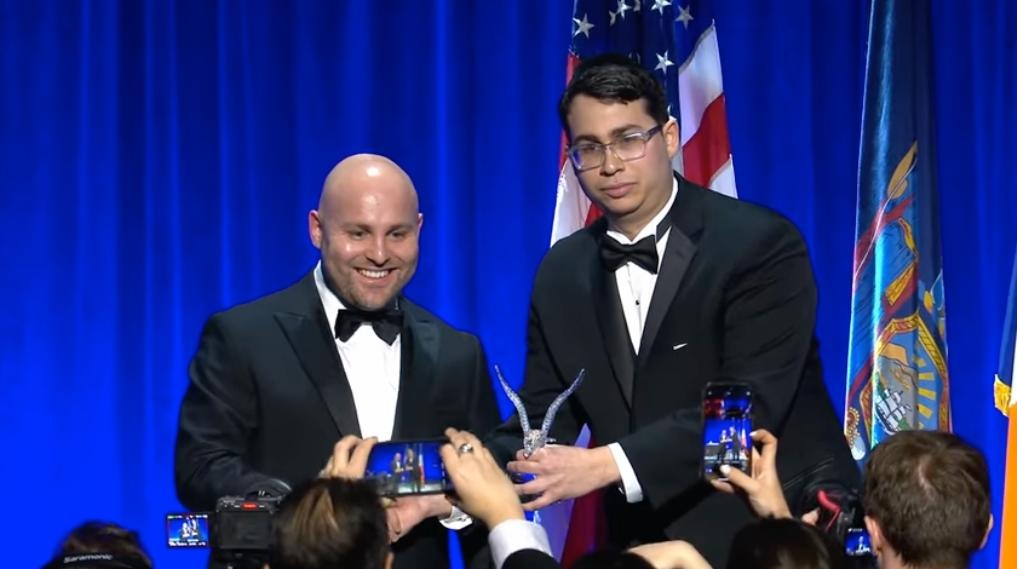In the first round of critical reactions to my book The Republican Brain, there wasn’t much to impress. As I related at AlterNet, the general conservative response to the book was to misrepresent its arguments, rather than to engage them seriously. (The book predicted this, incidentally.)
But now that some researchers have been able to read and process the book, some highly intellectually serious criticism arrives courtesy of Yale’s Dan Kahan, of whose work I’ve written a great deal in the past. You can see Kahan’s first two responses to the book here and here—the latter includes new experimental data. You can see my roadmap for how I plan to respond to Kahan here.
This is the first post of my response, and it is solely dedicated to clarifying my position in this debate. You see, while many people will read this exchange as though I am claiming that conservatives are inherently more biased than liberals—or in other words, claiming that they engage in more or stronger motivated reasoning—it isn’t actually that simple.
The closing words of The Republican Brain are these:
I believe that I am right, but I know that I could be wrong. Truth is something that I am driven to search for. Nuance is something I can handle. And uncertainty is something I know I’ll never fully dispel.
These are not the words of someone who is certain in his beliefs—much less certain of the conclusion that Dan Kahan calls the “asymmetry thesis.”
As Kahan uses the phrase, it is the view that conservatives, more than liberals, or more intensely than liberals, engage in the process motivated reasoning—e.g., letting their emotions and beliefs shape their sense of factual reality in a goal-directed manner, one aimed at preserving their identity, their group’s identity, and so on.
Does The Republican Brain strongly assert and defend the asymmetry thesis as Kahan describes it? Well, not exactly. I discuss motivated reasoning in great detail, to be sure. And I take the position that conservatives often engage in motivated reasoning very strongly—for instance, in denying the science of climate change (to preserve their belief in “individualism”), in believing that Iraq had weapons of mass destruction (to preserve their belief in George W. Bush), in believing that President Obama was not born in the United States (for reasons that you can guess about) and so on.
However, I also observe at many points in the book that liberals, too, engage in motivated reasoning. In fact, they may even do so more strongly than conservatives on certain issues where liberals are themselves highly emotional and (literally) identity-protective. These tend to be matters pertaining to equality, such as race.
In other words, I fully acknowledge that liberals, too, let their emotions skew their reasoning. As human beings, it would be stunning if they didn’t. And yet nevertheless, in modern American politics, conservatives overwhelmingly seem to hold more politically convenient but factually wrong beliefs—so what is up with that?
At the close of the book, I report a new experiment designed by political scientist Everett Young, conducted at Louisiana State University, trying to solve this riddle. We set up an experimental design to test whether conservatives engage in more motivated reasoning than liberals—and the data did not confirm the hypothesis. To be sure, the findings were suggestive at points–especially in showing conservatives to be more biased than liberals about the issue of nuclear power, of all things. But you could hardly call the findings definitive.
Accordingly, The Republican Brain is ultimately pretty agnostic about the issue of “asymmetry” in motivated reasoning. That’s because I was well aware of the scientific uncertainty that lingers around this question, and the difficulty of conducting experimental tests to dispel it. Kahan discusses many of these difficulties, but let me just elaborate a bit myself.
Suppose that a study (one by Kahan, as it happens) shows that conservatives who know more about science are more wrong in their beliefs about global warming, whereas liberals who know more about science are more right in their beliefs about nuclear power. This sounds a lot like an asymmetry in motivated reasoning—especially since we know that more knowledge or political sophistication generally worsens this biased reasoning behavior—but is it definitive proof? Not necessarily. After all, it could simply be that conservatives have stronger emotions about global warming than liberals have about nuclear power—which would make it unfair to compare the two issues.
See the difficulty here? You can’t measure an ideological difference in motivated reasoning unless liberals and conservatives have the same motivations, or at least the same motivational intensity, to begin with. If the motivations are different, or different in intensity, then those might be the true cause of any difference that you observe in the experiment.
Such is the scientific quandary, but do I personally believe in the asymmetry thesis? Let me put it this way. I believe there is something inherent about conservatives, versus liberals, that leads them to process information differently and that, in the current era in American politics, leads them to hold more politically convenient but factually incorrect beliefs. However, there are many candidates for what that something is; and importantly, many of them are much better documented in the scientific literature than is any fundamental left-right gap in motivated reasoning.
I review the candidates for that special something in The Republican Brain—and note that these also might be termed “asymmetries,” although they are not the one Kahan is focused on. They include:
1. Conservatives have different personalities than liberals on average—less openness to new experiences, for instance, and more conscientiousness.
2. Conservatives have different psychological needs than liberals on average—including, importantly, the psychological need for closure, or to have a definitive belief about something…to have certainty. This is not a comment on the quality of conservative reasoning, by the way (something Kahan is mistaken on); rather, it is a comment on conservative motivations in processing information.
3. Conservatives tend more strongly towards authoritarianism, a personality type or disposition associated with an intolerance of ambiguity and seeing the world in sharply defined, black and white terms. Authoritarianism is not a “quality of reasoning” measure either, but this is a trait that has been associated with reasoning errors, such as committing the Fundamental Attribution Error (FAE), and also with more selective exposure to friendly sources of information.
4. On a moral level, conservatives are more group oriented—more likely to affirm loyalty to the unit, the tribe, the team—and more respectful of authority. This is based on Jonathan Haidt’s work, but it also echoes the research on authoritarianism.
And so on. Really, that just scratches the surface of the research on left and right.
Now, all of these differences could be having downstream effects on how conservatives process information and apportion beliefs in public policy debates. In fact, let me put it more strongly—I’m quite convinced these differences are having all sorts of downstream effects, although I’m considerably less certain about precisely what they are (because the research on this is, as we’ve seen, more scant and more difficult to conduct).
What are some possible downstream effects? Well, one is certainly motivated reasoning—and when it comes to conservatives’ moral convictions and group loyalty, I’m quite sure these are fueling motivated reasoning, asymmetrically or otherwise.
But there are other possible effects. For instance, perhaps conservatives consume or process less information than liberals, a behavior we would expect to see based on their greater need for cognitive closure. And indeed, as I mentioned, some evidence discussed in the book suggests conservatives engage in more selective exposure to friendly information sources, like Fox News. Is that motivated reasoning? Well, not exactly. Is it an important asymmetry? Well, yes: I believe it is.
Let me also note that in the study at LSU, while we did not find clear evidence of worse conservative motivated reasoning, we did find something that smacks of the need for closure: conservatives across the board were spending less time reading the essays provided in the experiment.
And then there is still another factor, one that I ultimately decide, in the book, is probably most important. And it is that liberals and scientists (and social scientists) share a deep psychological affinity—they are explorers, tolerant of uncertainty, always seeking out the different, and the new. They have similar personalities. This leads liberals to want to be scientists, and leads the ranks of scientists to be full of liberals—and thus builds a natural allegiance and affinity between the two groups.
So when it then comes to determining what’s true about reality, liberals are lucky enough to have the “right friends,” as the psychologist Peter Ditto put it to me. And conservatives have the “wrong enemies.” This—not an inherent asymmetry in motivated reasoning–is the most important underlying explanation here, in my mind.
This is a complex explanation, to be sure—but then, I’m a liberal. I can’t help it. The point is that throughout this process, and throughout writing the book, I have strived to apportion my beliefs and my claims to the available evidence. That’s precisely what The Republican Brain does. It is careful because the issues are complex. Indeed, as I painstakingly explain in the book, any inherent left-right differences also play out in a changing cultural, technological, and media context—adding yet another layer of complexity to the issue.
Nonetheless, evidence is very strong that 1) conservatives and liberals are psychologically and morally different; and 2) U.S. conservatives today hold a wealth of demonstrably false, but politically convenient beliefs.
What’s the precise nature of the bridge, the linkage, between 1 & 2? Based on the current state of the science, I do not think we definitively know. However, I think we will find out and that we’ve got a lot of good leads—which is why this discussion is so helpful to have.
So let’s have it.
Subscribe to our newsletter
Stay up to date with DeSmog news and alerts






